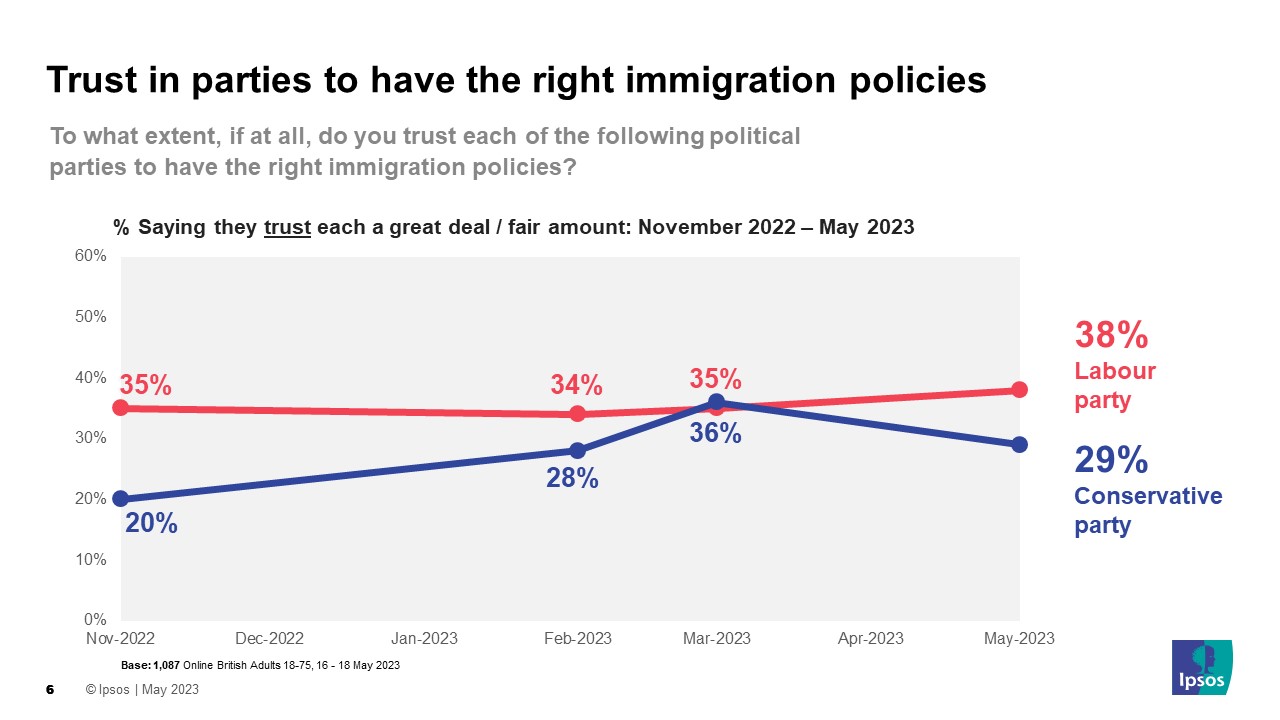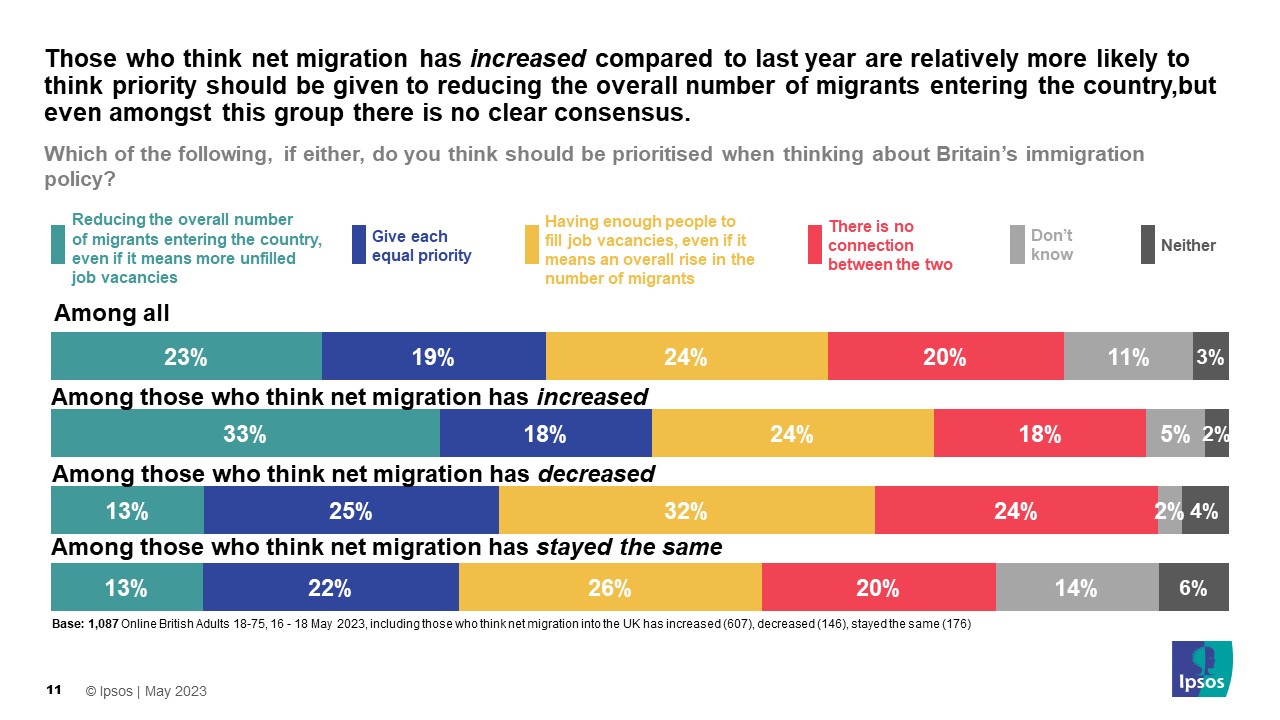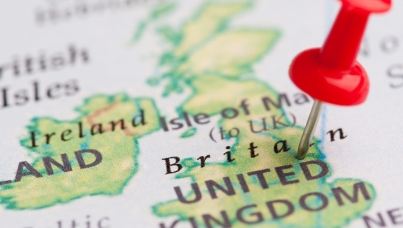Trust in Conservative government to have the right immigration policies down 7ppts from March, with Braverman satisfaction ratings stable at 19 per cent
- Only 3 in 10 (29%, down from 36% in March) trust the Conservatives to have the right immigration policies, compared to 38% who trust Labour
- 1 in 5 (19%) think Suella Braverman is doing a good job as Home Secretary and 37% think she is doing a bad job, in line with March scores
- While most think net migration is rising, the public is divided in their priorities between reducing immigration or filling job vacancies
New research by Ipsos shows that perceptions of Suella Braverman’s performance as Home Secretary are unchanged since March, with nearly 4 in 10 Britons (37%) thinking she is doing a bad job in her role, and only half as many (19%) saying she’s doing a good job. A further 1 in 4 (24%) say she’s doing neither a good nor bad job, with nearly the same amount (21%) unsure.
After seeing an 8ppt jump in confidence in March 2023, trust in the Conservative government to have the right immigration policies has fallen back to 29%, in line with levels seen in February. There has also been a fall among 2019 Conservative voters: in March, 61% trusted the Conservative party to have the right immigration policies, down to 47% in May – though still 10ppts higher than the 37% seen in February. By contrast, 38% among the public overall trust the Labour party in this area, a small 3ppt gain compared to March.

The dip in confidence in the government comes as more than half of Britons think net migration into the UK has increased since 2022 (57%), increasing to 72% of 2019 Conservative voters.
When asked what Britain’s priority should be in shaping its immigration policy, there is no clear consensus: an equal share said the priority should be reducing the overall number of migrants entering the country, even if it means more unfilled job vacancies (23%) as said they should do the opposite, and prioritise having enough people to fill job vacancies, even if it means an overall rise in the number of migrants (24%). A further 1 in 5 each said the government should give each equal priority (19%) and that there is no connection between the number of migrants and the number of job vacancies (20%).
Those who perceive net migration to have increased are the most likely to say the government should prioritise reducing the number of migrants (33%), but even amongst this group there is no clear consensus when taking into account job vacancies as well.

Gideon Skinner, Head of Political Research at Ipsos, said:
After seeing a boost in confidence in their handling of immigration in March, trust in the Conservatives on this issue has dropped back again. This is reflected in the views of their own 2019 voters, who are the most likely to think that net migration is rising, although their own supporters are still more positive than earlier this year. Labour now has a lead on this issue, although public confidence is not high in either party. The lack of consensus around how the country should balance the competing priorities of unfilled job vacancies and migration also suggests that regaining public confidence will not be straightforward.
Technical note
Ipsos interviewed a representative quota sample of 1,087 adults aged 18-75 in Great Britain. Interviews took place on the online Omnibus 16th-18th May 2023. Data has been weighted to the known offline population proportions. All polls are subject to a wide range of potential sources of error.




